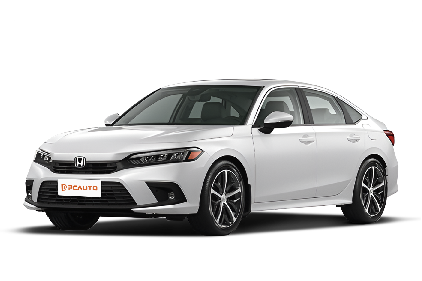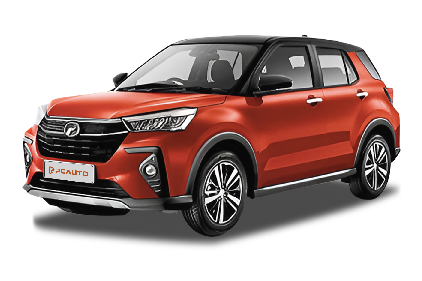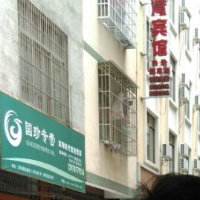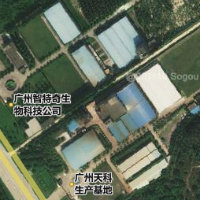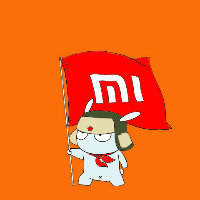Q
how to remove deep scratches from car
To fully remove deep scratches from your car's body, start by assessing how deep they are. If your fingernail can clearly catch in the scratch, that means it's gone through the base coat—time for a step-by-step fix. For shallow scratches, you can start with a rubbing compound and a polisher, but be careful with the pressure to avoid damaging the factory clear coat. If the scratch is deeper, first use 2000-3000 grit wet sandpaper with water to gently sand the area, then use polishing paste to restore the paint's shine, and finally apply car wax for protection. For severe scratches that expose bare metal, it's best to head to a professional body shop ASAP to prevent rust—Malaysia's hot and rainy climate speeds up metal oxidation.
Daily parking: try to avoid spots under coconut trees or near construction sites. Regular waxing helps prevent fine scratches, and if your budget allows, consider a long-term protection solution like Paint Protection Film (PPF). When washing your car, skip hard-bristle brushes or cleaners with abrasive particles. Always work in the shade to avoid paint damage from high temperatures during polishing. Paint maintenance is an ongoing process—I recommend a professional coating treatment every six months.
Special Disclaimer: This content is published by users and does not represent the views or position of PCauto.
Popular Models
Related Q&A
Q
What is the torque of the 2020 BMW 7-Series?
The 2020 BMW 7 Series offers a diverse range of powertrain options in the Malaysian market, with torque figures varying significantly across engine types. The 740Li, for instance, packs a 3.0-liter inline-six turbo that cranks out a healthy 450 Nm of peak torque. Step up to the 750Li xDrive, and its 4.4-liter twin-turbo V8 ups the ante to a robust 650 Nm. For the ultimate thrill, the high-performance M760Li xDrive unleashes a monster 850 Nm from its 6.6-liter twin-turbo V12—numbers that truly showcase BMW's engineering prowess in powertrain tuning.
For Malaysian drivers, that extra torque isn't just about bragging rights; it translates to sharper off-the-line acceleration and quicker overtakes—super useful in our stop-start city traffic or when merging onto highways, especially with our tropical weather playing havoc. What’s more, BMW’s xDrive all-wheel-drive system ensures all that twist is put to the tarmac effectively, while the smooth-shifting 8-speed Steptronic gearbox strikes a nice balance between sporty responsiveness and everyday comfort.
If you’re shopping around, it’s worth cross-checking torque figures with rivals like the Mercedes S-Class or Audi A8. But remember, raw numbers only tell part of the story—how a brand tunes its torque curve can drastically affect real-world driving feel. My two cents? Always take a test drive before making your call.
Q
What is the warranty on a 2020 BMW 7-Series?
The 2020 BMW 7 Series in Malaysia typically comes with a 5-year or 100,000 km warranty, whichever comes first. This coverage takes care of the car's major mechanical bits – think engine, transmission, and drivetrain. You also get 12 months of rust warranty and a 24-month battery warranty thrown in. Now, it's worth noting that what's covered can change based on how you drive the car or if you skip those scheduled services at authorized BMW centers. So, do yourself a favor and stick to the official service centers for your maintenance – that way, you keep that warranty valid.
If you want extra peace of mind, BMW offers extended warranty options you can pay for. Once the factory warranty runs out, you can pick an extended plan that suits your needs, giving you longer coverage. For Malaysian owners, understanding these warranty details is pretty crucial. Let's face it, our tropical climate can be tough on cars – electronics and rubber parts especially take a beating. Staying on top of regular servicing and making the most of that warranty can really help keep your 7 Series running strong and performing at its best for longer. The good news is BMW's after-sales network here is pretty solid, so getting professional repairs and support should be a breeze.
Q
What is the towing capacity of a 2020 BMW 7-Series?
The towing capacity of the 2020 BMW 7 Series varies depending on the specific model and configuration. Generally, models not equipped with a towing package aren't recommended for towing. However, variants like the 750i xDrive with the optional factory towing kit can handle a maximum braked towing weight of around 2,000 kilograms. When actually towing, though, you'll need to factor in local Malaysian regulations and road conditions, and strictly follow the load distribution and speed limit guidelines outlined in the vehicle manual. It's worth keeping in mind that luxury sedans are engineered with a focus on balancing comfort and performance, so their towing capacities typically fall short of SUVs or pickup trucks. If you regularly need to tow, the BMW X Series would be a more practical choice. In Malaysia's hot and humid climate, prolonged towing also requires special attention to the cooling efficiency of the transmission and braking systems. Make sure to inspect the condition of drivetrain components regularly, and always ensure your towing equipment meets local JPJ certification standards to avoid compromising road safety or invalidating your vehicle's warranty due to unapproved modifications.
Q
Is the 2020 BMW 7-Series comfortable for long drives?
The 2020 BMW 7 Series truly shines when it comes to long-distance comfort, making it a perfect fit for Malaysia's roads and driving needs. Under the skin, it's packing that fancy air suspension setup that smartly adjusts damping based on the road surface, ironing out those bumps and keeping the ride super smooth. The seats? They're wrapped in premium leather and come with all the goodies—multi-way electric adjustment, heating, ventilation, and even massage functions—so even after hours behind the wheel, you stay comfy.
Noise insulation is top-notch too. With double-glazed windows and active noise cancellation, wind and tire roar are seriously muted, creating this really quiet cabin space. Then there's the rear legroom—stacked. Tons of space to stretch out, with good headroom too, whether you're chauffeuring the family or clients on a long haul.
For us here in Malaysia, the 7 Series doesn't skimp on beating the heat either. The air-con system is tailored for tropical climates, cranking down the temp quickly and keeping it steady. And let's not forget the driver aids—adaptive cruise control and lane keeping really take the edge off those tiring highway stretches or city commutes. If you're regularly hitting Malaysia's expressways or zipping between cities, the 7 Series' blend of luxury comfort and tech makes it a pretty solid pick.
Q
Does the 2020 BMW 7-Series have all-wheel drive?
The 2020 BMW 7 Series was indeed offered with xDrive – BMW's intelligent all-wheel drive system – in the Malaysian market. This system dynamically distributes power between the front and rear axles based on road conditions, enhancing stability on wet surfaces or during high-speed cornering. Malaysia's rainy climate makes xDrive a practical choice, as it effectively boosts grip on slippery roads, particularly useful during those frequent heavy downpours we get.
Beyond the all-wheel drive option, the 7 Series was also available with rear-wheel drive (sDrive), letting customers pick based on their needs and budget. BMW's xDrive is known for its quick reactions; it typically defaults to a 40:60 front-to-rear power split but can instantly adjust to 20:80 or even 50:50 when necessary.
It's worth highlighting that the 2020 7 Series also came with the Driving Experience Control system, allowing drivers to switch between Comfort, Sport, and Adaptive modes. This further fine-tunes the performance of the all-wheel drive system. For Malaysian buyers, while opting for the xDrive variant does add a bit to fuel consumption and the initial purchase price, it delivers more comprehensive driving security – especially valuable in regions like East Malaysia's Sarawak, where road conditions can be more challenging.
Q
How many cylinders does the 2020 BMW 7-Series engine have?
For the Malaysian market, the 2020 BMW 7 Series came with a trio of engine options tailored to different tastes: an inline-six (740i), a burly V8 twin-turbo (750i), and the range-topping V12 (M760Li). Cylinder count varies by trim, of course. The 740i packs BMW's familiar 3.0L inline-six turbo (the B58 engine), the 750i steps up to the 4.4L V8 twin-turbo (N63), and the flagship M760Li? That's the big dog with the 6.6L V12 twin-turbo (N74). All these engines are known for their punchy, efficient performance and that typically BMW-refined power delivery—fitting for a luxury flagship.
Here's the kicker though: the V12 is the crown jewel of BMW's engine lineup, usually a limited-production affair, and since BMW started phasing them out after 2022, that makes the 2020 M760Li a bit of a collector's item in Malaysia. For local buyers, there's more to weigh than just badge prestige. Malaysia's road tax system hits bigger displacements hard, so that V12 will sting at renewal time. Then there's daily usability. If you want a solid balance of performance and fuel economy, the 740i's inline-six is a smart pick—it's also got that modular design which makes servicing a bit less of a headache. The V8? That's for folks who just want more grunt under the hood, plain and simple.
Q
What is the maintenance cost of the 2020 BMW 7-Series?
The maintenance costs for the 2020 BMW 7 Series in Malaysia can vary depending on the specific model—like the 730Li, 740Li, or 750Li—and how many miles you've clocked. For a standard service, which typically includes an oil and filter change, you're looking at roughly RM800 to RM1,500 per visit. If it's a major service, though—think replacing brake pads, transmission fluid, and other wear items—costs can jump to RM3,000 to RM5,000, depending on whether you go for a package at an official BMW service center or stick with genuine parts.
Since the 7 Series packs high-performance engines and cutting-edge tech, I’d always recommend sticking with OEM parts to keep that performance sharp. Regular servicing isn’t just about avoiding breakdowns, either—it’ll help keep the car running smoothly for longer and preserve that premium driving feel BMWs are known for. Over in Malaysia, BMW’s authorized service centers are pretty upfront with their pricing, and they often offer service packages that can help trim long-term costs if you’re planning to keep the car for a while.
Sure, luxury cars like the 7 Series do cost more to maintain than your average sedan, but here’s the upside: BMW’s reputation for reliability and those advanced driver-assist features help keep resale values strong. When you factor that in, the 7 Series starts to look like a solid long-term investment.
Q
What is the resale value of the 2020 BMW 7-Series?
The 2020 BMW 7 Series holds its value in Malaysia's used car market based on several factors: overall condition, mileage, specs, and market demand. Generally speaking, you're looking at a ballpark figure of around RM350,000 to RM550,000 for a pre-owned model. The exact price tag really hinges on the specific variant—like whether it's a 730Li, 740Li, or 750Li—and if it's kitted out with those premium optional extras.
As a luxury flagship sedan, the 7 Series maintains pretty strong residual values in the used car scene, thanks to its killer driving dynamics, cutting-edge tech, and plush interior. Low-mileage examples with a solid service history are always the pick of the bunch, fetching more interest (and better prices).
For Malaysian buyers eyeing a used luxury car, it’s crucial to dig into the service records and check for official certifications to ensure complete transparency on the car’s condition. Sticking to reputable dealerships or trusted channels is also a smart move to minimize any potential headaches down the line. On top of that, BMW’s well-established after-sales service network across Malaysia definitely adds to the long-term ownership appeal and resale value of these cars.
Q
Is the 2020 BMW 7-Series fuel-efficient?
The fuel efficiency of the 2020 BMW 7 Series really depends on which specific model and powertrain you're looking at. For Malaysian buyers, the turbocharged petrol engines and the plug-in hybrid option (like the 745e) offer pretty different takes on efficiency. Let's break it down: the 740i, with its 3.0-liter inline-six turbo, should return around 8.5 to 9.5 liters per 100 kilometers in mixed driving. Then there's the 745e hybrid – that one can do about 50 to 55 kilometers on pure electric power, which is great for city hops, and the combined fuel consumption drops right down to 2.5 to 3.0 liters per 100 km.
Now, it's worth keeping in mind that Malaysia's hot weather and those inevitable traffic jams can take a bit of a toll on those numbers. So, staying on top of regular maintenance and driving sensibly will definitely help keep things efficient. BMW's EfficientDynamics tech plays a part too, with stuff like brake energy regeneration and auto start-stop chipping in. If saving fuel is a top priority, the hybrid makes a strong case, but you'll need to weigh that higher initial price tag against the long-term savings at the pump.
Q
What is the turning radius of the 2020 BMW 7-Series?
The 2020 BMW 7 Series has a turning radius of approximately 6.3 meters, and this figure applies to the standard wheelbase version. The long wheelbase variant will likely be slightly larger, depending on the specific model configuration and tire size. Turning radius is a key measure of how nimble a car is in tight city streets or parking lots – the smaller the number, the more maneuverable the vehicle. For Malaysian buyers, this means the 7 Series should handle nicely even in the busy streets of Kuala Lumpur or cramped shopping mall parking structures.
What's really worth highlighting is the 7 Series' rear-wheel steering system. This tech shrinks the turning circle at low speeds for easier parking and enhances stability at higher speeds, making the whole driving experience that much better. Whether you're tackling Malaysia's twisty mountain roads or navigating urban traffic, this setup definitely makes driving less of a hassle. If you often find yourself squeezing into tight parking spots, make sure to pay extra attention to how this feature works during your test drive. It's also a good idea to compare its turning radius with other luxury sedans in its class to ensure you pick the one that best fits your daily driving needs.
Latest Q&A
Q
What is a 2020 VW Passat worth?
In 2020, the second - hand car prices of the Volkswagen Passat in Malaysia were approximately between RM90,000 and RM130,000. The specific value depends on factors such as the vehicle's condition, mileage, configuration version, and maintenance records. For example, the price difference between the entry - level version equipped with a 1.8 TSI engine and the high - end 2.0 TSI version can be up to RM30,000. Usually, for each additional year of the vehicle's age or every 10,000 kilometers exceeded in mileage, the price will decrease by 5% to 8%.
It's worth noting that as a German mid - size sedan, the Passat has a better resale value in the second - hand market than some Japanese competitors. This is due to its solid chassis tuning and the reliability of the EA888 engine. At the same time, it is recommended that buyers give priority to vehicles with complete original - factory maintenance records and pay attention to checking the shifting smoothness of the 7 - speed DSG transmission. Such details will significantly affect the long - term use cost. In Malaysia's hot climate, special attention should also be paid to the aging of rubber parts. Regularly replacing the coolant and transmission oil can effectively extend the vehicle's service life.
Q
Is a 2020 VW Passat a good car?
The 2020 Volkswagen Passat is a model worth considering in the Malaysian market. It has won the favor of many consumers for its comfort, practicality, and reliable performance. This car is equipped with a 1.8-liter or 2.0-liter turbocharged engine, which provides smooth power output and good fuel economy, making it suitable for both city driving and long-distance travel in Malaysia.
The interior design is simple yet elegant. The materials used are of high quality, and the space is quite roomy. In particular, there's plenty of legroom in the back row, which makes it perfect for family use. In terms of technology features, it comes with an 8-inch touchscreen, Apple CarPlay, and Android Auto, enhancing the convenience of daily use.
Safety is also one of the Passat's strong points. It comes standard with a number of active safety technologies, such as automatic emergency braking and blind-spot monitoring. In Malaysia, Volkswagen has a relatively well - established after - sales service network, so maintenance is relatively convenient.
It should be noted that as a German - made car, the prices of its spare parts may be slightly higher than those of Japanese cars. However, its overall quality and durability are excellent. For Malaysian consumers who value comfort and practicality, the 2020 Passat is a great choice. It is recommended to compare it with Japanese or Korean models in the same class before making a purchase and make a decision based on your own budget and needs.
Q
How big is the trunk of the Passat 2020?
The 2020 Volkswagen Passat has a trunk capacity of 586 liters. This space is more than ample for daily use or family outings. It can easily hold multiple suitcases or large items, which suits the Malaysian consumers' preference for long - distance travel and their relatively high demand for shopping. If you need to expand the space, the rear seats can be folded down in proportion, further enhancing the storage flexibility and making it convenient to carry longer items like golf clubs or camping gear.
In Malaysia's hot and rainy climate, the Passat's trunk design also takes practicality into account. The interior is flat and the opening is large, facilitating the loading and unloading of items. Among cars in the same class, the Passat's trunk performance is above average, balancing comfort and practicality. It's a great option for users who value space and versatility.
Moreover, the Passat's trunk is equipped with useful anchor points and storage features, which make it easy to secure items or store small things in an organized way. These little details can bring a lot of convenience in daily use.
Q
What gas does a 2020 Passat take?
The 2020 Volkswagen Passat is recommended to use RON 95 unleaded gasoline in the Malaysian market. This is the most common and cost - effective fuel choice in Malaysia, which can fully meet the daily needs of the 1.8 TSI or 2.0 TSI turbocharged engines of this model, and it also complies with local fuel standards and vehicle design specifications. If you're after better performance, you can also opt for RON 97 unleaded gasoline. Its higher octane rating can optimize the engine's anti - knock performance under high - load conditions. However, it should be noted that Malaysia uses a floating oil price mechanism, and the cost of RON 97 is significantly higher than that of RON 95.
It's worth mentioning that all gasoline in Malaysia is required to have detergents that meet EURO 4M standards or higher, which can effectively keep the fuel system clean. Car owners don't need to buy additional fuel additives. For turbocharged models, it's advisable to regularly check the status of the high - pressure fuel pump and injectors at authorized service stations, as these direct - injection engines are quite sensitive to fuel quality.
In addition, there may be differences in fuel supply between the Malaysian Peninsula and some remote areas in East Malaysia. Before a long - distance self - drive trip, you can check the distribution of gas stations through the MyEG or Petronas apps.
Q
What kind of oil does a 2020 Passat use?
For the 2020 Volkswagen Passat in the Malaysian region, it is recommended to use synthetic engine oil that meets the VW 502 00 or VW 504 00 standards. The viscosity is usually 5W - 30 or 5W - 40. The specific choice needs to be adjusted according to the driving environment and climate conditions. In hot climates, 5W - 40 can be given priority to provide more stable high - temperature protection.
Malaysia has a hot and humid climate. It is recommended that car owners change the engine oil regularly every 10,000 kilometers or 12 months (whichever comes first), and ensure that the vehicle is serviced at an authorized dealership or a certified repair center to maintain the validity of the warranty.
It should be noted that if the vehicle is equipped with a GPF (Gasoline Particulate Filter), low - ash engine oil (such as those meeting the VW 504 00 standard) must be used to avoid clogging. The quality of the engine oil directly affects the engine's lifespan and fuel efficiency. It is recommended to choose well - known brands like Castrol, Shell, or Liqui Moly, and select products that are VW - certified. Also, regularly check the engine oil level, especially before long - distance trips.
If you often encounter congested traffic or engage in high - intensity driving, you can appropriately shorten the oil change interval to 8,000 kilometers to optimize protection.
View MoreLatest News

Toyota Mystery Project teaser sparks speculation, Akio Toyoda personally involved in teaser process
JamesOct 2, 2025

Rumor: Toyota and Mazda collaborate to develop the next-generation MX-5 and GR86
AshleySep 30, 2025

MAZDA EZ-60 will be launched in China, and will be available in other global markets in 2026
RobertSep 30, 2025

BYD surpasses Tesla in the European electric vehicle market for the second consecutive month
LienSep 30, 2025

Smart launches its first PHEV in China, with a pure electric range of 252km and a combined range of 1615km
RobertSep 30, 2025
View More


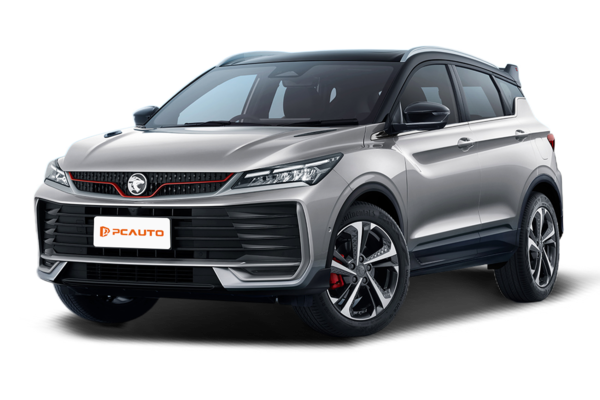
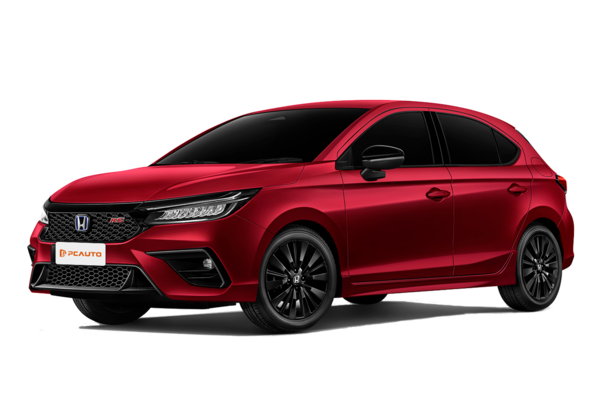
 Cars
Cars